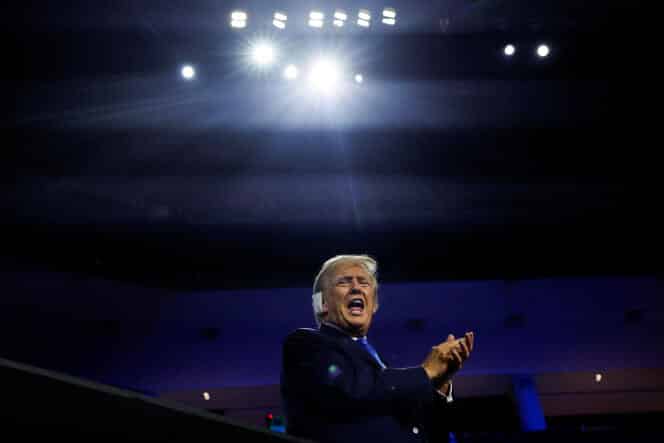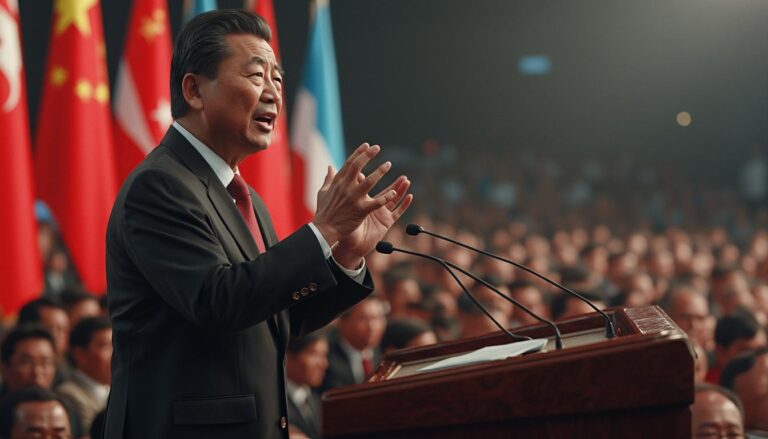It is obvious that Donald Trump, former President of the United States, has not mastered the art of defense in the strategic and diplomatic sense of the term. His unpredictable statements and decisions often motivated by personal interests seem to demonstrate a lack of understanding of international issues and traditional alliances. This inability to orchestrate a coherent defense policy raises questions about the posture of the United States on the world stage, particularly with regard to its allies and adversaries, and illustrates the challenges posed by his presidency to the sovereignty and to the stability international.

Donald Trump’s presidency has sparked many controversies, particularly regarding foreign and defense policy. Although the latter has not failed to assert his determination to make the United States a dominant power, his approach has often been perceived as ill-informed and haphazard. This article aims to explore the multiple facets of Trump’s defense strategy, highlighting the challenges and inconsistencies of his doctrine.
Table des matières
ToggleA biased economic view of military power
Trump has frequently articulated his conception of power in strictly economic terms. The idea that the military coercion of the United States is mainly based on economic power relations reveals a simplistic interpretation of international relations. This reasoning has led to a marginalization of traditional military and diplomatic engagements, seen as essential to maintaining strong alliances and deterring possible aggression.
A lack of commitment to allies
Trump’s statements regarding NATO have deeply troubled European nations. By downplaying Article 5, which states that any attack on one NATO member is an attack on all, Trump insinuated that it might not guarantee protection for allies. Such an approach creates a very real uncertainty on the reliability of the United States as a strategic partner, thus weakening the very principle of collective deterrence.
The absence of a clear doctrine
It is also clear that Trump governed without the establishment of a defense doctrine consistent, relying instead on personal instincts and obsessions. This lack of strategic vision has led to military actions that are sometimes contradictory and poorly evaluated. We observe here a form of improvisation which contrasts with the more measured and planned approaches that one would expect from a leader of the global superpower.
Political and ethical weight
Trump’s presidency has also been characterized by a climate of internal division and tension. Many people denounced his speeches, deemed inappropriate, which contributed to the trivialization of the hate and misinformation. The significance of these elements is amplified by their impact on international relations, where the legitimacy and morality of actors play an essential role in maintaining peace.
The need for a strategic reassessment
While Trump’s possible return to the White House could reintroduce these destabilizing dynamics, it is crucial for the United States to reconsider its defense policy. The experience acquired during his presidency should serve as a lesson in establishing a more integrative approach, combined with a recognition of today’s complex global issues. Rehabilitating the importance of diplomacy and alliances remains essential for the development of a defense strategy that meets contemporary challenges.
In conclusion, assessing Trump’s defense mastery highlights significant anomalies in his ability to navigate the stormy waters of international relations. The implications of his decisions continue to resonate, highlighting the urgent need for a more considered and concerted approach to defense policy.
📗 Le rapport de @P_Lemoine et @Mel_Thomin sur le thème "La #défense et les territoires : quels rôles pour les acteurs du territoire dans la défense nationale ?" est en ligne 👉 https://t.co/irYGbjQCml.#DirectAN pic.twitter.com/jlmR6eX9dx
— Commission de la Défense (@AN_Defense) June 5, 2024

























